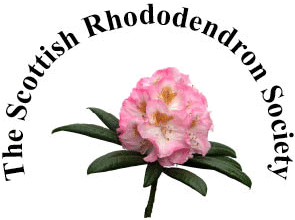There were only 7 replies to the questionnaire.
The following are my questions and a summary of the seven responses
1. Have you cut down on peat use in your own garden? – 7 out of 7 reported that they had cut down on use of peat and particularly its use as a soil improver.
2. Which commercial compost do you use? – Not everyone responded to this question.
· Melcourt Silvagrow, both ericaceous and multipurpose was mentioned by 3 respondents…..? Possibly its support by the RHS was influential.
· Dalefoot was mentioned by 1. This is a compost containing sheep’s wool.
· Arthur Bowers, peat free or reduced peat, Westland, New Horizon and Dobies (ericaceous) all got one mention as did Garden Solutions of Longniddry.
· Homemade compost was mentioned by four, often to be mixed in with commercial brands. Especially with groups of plants other than rhododendrons. One of the 7 relies entirely on homemade compost.
3. How much growing success do you have with peat free composts?
· Multipurpose Melcourt silvagrow was found to be good for general potting of non-rhododendron subjects.
· Dalefoot alpine peat free was reported as being good.
· There was general agreement that the use of peat free composts required a new approach especially as regards watering requirements.
4. Are any plants particularly difficult to grow in peat free compost in your experience?
· One person mentioned Mecanopsis as being particularly tricky.
· Another said that the early stages of rhododendron growth required special care – see general comments. Sterile nature of peat was mentioned as an important factor for seed sowing.
· One respondent said that in his experience, once a good root ball was established on a cutting of a rhododendron, then a general purpose peat free compost was fine.
5. Are there any particularly difficult stages of growth of rhododendrons where compost is very critical?
· 4 out of 7 mentioned seed sowing and pricking out
· 3 out of 7 mentioned cuttings
Additional comments which may be of use or of interest
Dalefoot composts can be ordered from www.dalefootcomposts.co.uk A comment was made that this compost made using bracken and sheep’s wool is not a sustainable product.
One respondent thought that research into a compost with bracken and redwood bark might be useful. That would not be commercially sustainable either.
One respondent thought that pure peat should still be available for a small number of growers with very specialist requirements and where peat may be the least bad alternative.
One respondent thought the composts containing Coir were dreadful and also that Coir should be kept in the countries that produce it where it could be used locally.
One respondent thought that composted wood was very unsuitable because of fungal growth that comes with it.
Three respondents used a mix of peat free ericaceous compost and perlite for sowing rhododendron seeds. In one case the ratio was 40:60
Two respondents used shredded sphagnum moss mixed with perlite for seed sowing.
For potting on, two respondents used peat free ericaceous compost mixed with fine bark and fine grit or perlite or sand. In one case the ratio was 50:40:10
The one respondent who mentioned cuttings used fine, sieved bark mixed with either or both perlite and fine grit.
In summary
1. We did not receive enough responses to be significantly representative of the view of the SRS.
2. Willie Campbell, our President, was aware of these responses when he sent a response to the Scottish Government questionnaire.
There has been no published analysis of the Government consultation as yet but 484 responses are available to read on the website. There may be other responses which will be used in the final analysis although permission was not given to publish them. The majority of the responses published were anonymous.
To find the published responses go to Ending the sale of peat in Scotland – gov.scot (www.gov.scot)
Survey conducted by Marion Kinns,

Please look at the Glendoick website for further comments on best composts for rhododendrons and azaleas and other acid loving plants.
Ken Cox has lots of suggestions.